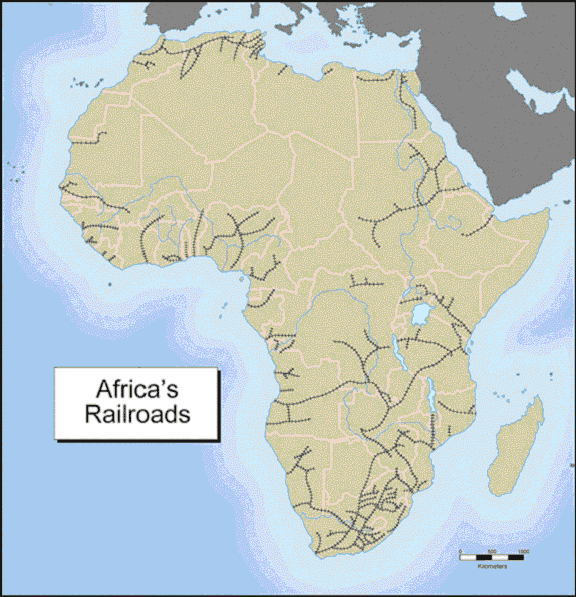You are using an out of date browser. It may not display this or other websites correctly.
You should upgrade or use an alternative browser.
You should upgrade or use an alternative browser.
The British troops dismantled Mogadishu railway
- Thread starter warside
- Start date
- Status
- Not open for further replies.
But the knee grows havent been able to built one train ever since 



Xooshdheere
how do i use this
they basically sacked every sector.
I remember reading about this. One of the first things that sparked my Somalinimo nacalaa curse these gaalos.
they dismantled Mogadishu-Jowhar railway, and destroyed Hafun salt factory.
Those bloody bastards
HuunoHunter
*Deactivated*
They build it, so they have the right to destroy it.


It was built by italians, the british destroyed it out of spite for the fascist italians and dervish somalis.They build it, so they have the right to destroy it.


HuunoHunter
*Deactivated*
Damn, now that I look at it.It was built by italians, the british destroyed it out of spite for the fascist italians and dervish somalis.
f*ck the British.
The British destroyed (still destroy) anything they deemed a threat to their own supremacy. Biggest threat is industrialization in the 3rd world.
they dismantled Mogadishu-Jowhar railway, and destroyed Hafun salt factory.
Those bloody bastards
They also destroyed the Germany-Constantinople-Mesopotamia railway because they felt threatened, just as in Somalia.
I'll continue repaying the favour by destroying British cadaan girls.:siilaanyosmile:The British destroyed (still destroy) anything they deemed a threat to their own supremacy. Biggest threat is industrialization in the 3rd world.
They also destroyed the Germany-Constantinople-Mesopotamia railway because they felt threatened, just as in Somalia.
Naah, don't play yourself like that bro, that makes it 2-0 to them. Stick to our own beautiful women who aren't full of pig parasites.I'll continue repaying the favour by destroying British cadaan girls.:siilaanyosmile:
they dismantled Mogadishu-Jowhar railway, and destroyed Hafun salt factory.
Those bloody bastards
Wait didn't the Brits colonize Somaliland?who let them do this in the south
Wait didn't the Brits colonize Somaliland?who let them do this in the south
The British captured Italian Somalia during World War II. The Italians got it back only as a Trust Territory under the UN, and were obliged to prepare the country for independence.
https://en.wikipedia.org/wiki/Trust_Territory_of_Somaliland
If third world countries start making their own shit, the first world countries won't have anymore customers.The British destroyed (still destroy) anything they deemed a threat to their own supremacy. Biggest threat is industrialization in the 3rd world.
They also destroyed the Germany-Constantinople-Mesopotamia railway because they felt threatened, just as in Somalia.
Exactly. In historical terms, independence only came around for Africa because the US demanded that the colonial countries open up the african economies to US companies, with the Marshall Plan as leverage. The UK + all the EU countries relinquished control and the US boomed as a result. They have to continue to keep Africa powerless to get raw materials on the cheap.If third world countries start making their own shit, the first world countries won't have anymore customers.
Exactly. In historical terms, independence only came around for Africa because the US demanded that the colonial countries open up the african economies to US companies, with the Marshall Plan as leverage. The UK + all the EU countries relinquished control and the US boomed as a result. They have to continue to keep Africa powerless to get raw materials on the cheap.
After independence in the 1960s, when I was there, the cloth and rice in the markets came from India. The cooking pots came from Pakistan. The qat in Hargeisa came from Ethiopia. US and European goods were extremely rare, usually just what the diplomatic community brought in or that came in the mail or diplomatic pouches. Italian cigarettes, wine, spaghetti and olive oil were exceptions in the South. The US role included USAID projects such as building the port at Kismayu and the road from Kismayu to Jilib, in support of the banana industry and national income, for which Italy had a trade monopoly and the US had no interest. After the Kacaan in 1969, most US personnel were required to leave the country, and Russia took over many of the assistance roles, up to the war in 1977, which largely ended foreign assistance.
What raw materials did the US ever get from Somalia?
Somalia has meat. It goes to Saudi and the Gulf.
Somalia has Uranium. Yellow cake is available on the open market for cheap prices. It's the processing that makes it useful and valuable.
Somalia has fish, taken by many foreign fishermen, but not, as far as I am aware, any US company.
The rape of the country for charcoal was undertaken by al Shabaab and exploited by Saudi and the Gulf countries.
Somalia may have commercial oil, and, if so, the Somali government would like to exploit it as a source of income. In 2014 the government invited a mixed bag of explorers to look for oil:
http://www.bbc.com/news/business-29993447
Somalia's economic difficulties do not stem from foreign exploitation. They stem from an economy geared to the military as clients of the USSR up until 1977, and a general lack of productive investment both before and since. The weather and the civil war have not helped.
Western aid has kept many alive. The government can negotiate any deal it thinks is fair. Western investment will likely help more than it hurts and should not be driven off by claims of expected exploitation.
Last edited:
- Status
- Not open for further replies.
Trending
-
Check out these hilarious reactions to Somali vs Habesha food
- Started by Barkhadle1520
- Replies: 33
-
-

